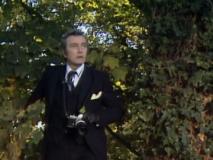Moments in Time: What's in a Name?
Saturday, 21 May 2016 - Reported by Chuck Foster
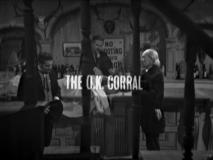 Originally envisaged as an ongoing serial, the first three years of Doctor Who rolled on from episode to episode, each individually titled with no 'umbrella' name to associate discrete stories, just an overall theme that changed every few episodes or so, and often linked through cliff-hangers (quite literally in the case of Desperate Measures) or where a plot might suddenly catch the audience by surprise (such as at the end of The Plague).
Originally envisaged as an ongoing serial, the first three years of Doctor Who rolled on from episode to episode, each individually titled with no 'umbrella' name to associate discrete stories, just an overall theme that changed every few episodes or so, and often linked through cliff-hangers (quite literally in the case of Desperate Measures) or where a plot might suddenly catch the audience by surprise (such as at the end of The Plague).However, after some 118 episodes new producer Innes Lloyd decided to revitalise the series, seeing the following episode to be broadcast adopt an overall name, and supporting cast disbanded over the next several weeks (not to mention a Doctor himself not that long thereafter!). And so, fifty years ago today saw the transmission of The O.K. Corral, the end of individual episode titles and the beginning of a controversy that fans still argue about today:
What should we call these discrete adventures of Doctor Who?
It wasn't until the 1970s that an emerging organised fandom would start to discuss their memories of long-since unseen adventures, and what they should be called - a common name would of course make sense so we would know we're talking about the same thing (would "the one with the Daleks invading Earth" or "the one with Napoleon in" ever catch on?). The Tenth Anniversary special edition of the Radio Times gave a first stab at this, though that tended to use the first episode of the serial as the name. Then, the revised The Making of Doctor Who book by Terrance Dicks and Malcolm Hulke published by Target provided another list of the stories, with many more familiar titles but some still a little different to what sits on DVD shelves of fans today (anyone watching The French Revolution tonight?). However, it was the publication by Target of the first edition of The Doctor Who Programme Guide by Jean and Randy L'Officier in 1981 that solidified a naming scheme that became 'universal' in fan usage and is still recognisable across the BBC brand to this day.
By the 1990s, however, the established names were beginning to be challenged by researchers who now had access to BBC records, uncovering a wealth of documentation that were to reveal titles used by the contemporary production teams and BBC Enterprises for promotion overseas. Some were quite trivial amendments - The Dalek Masterplan is now considered The Daleks' Master Plan (even within the BBC's online Doctor Who section), and The Massacre has become a rather more wordy The Massacre of St Bartholomew's Eve. Others aren't generally used - "Doctor Who and ..." has never taken on (except in the cast of a certain early Pertwee serial!), and only the 'hardened fan' ever refers to Mission to the Unknown as Dalek Cutaway! It's the naming of the first three serials, however, that remains the most hotly contested ...
The Radio Times Tenth Anniversary special and The Making of Doctor Who originally used An Unearthly Child, The Dead Planet and The Edge of Destruction; then the Doctor Who Programme Guide and the Radio Times Twentieth Anniversary special utilised The Daleks for the second serial; when The Sixties was published in 1992, the first three serials were now referred to as 100,000BC, The Daleks, and Inside the Spaceship, but by the time the same authors published The First Doctor Handbook in 1994 the second serial had become The Mutants. These last three names are the ones adopted by the official Doctor Who Magazine (and also used on the covers of The Complete History series of books) - though the names often include an "aka" to the "common name" that everybody is more familiar with!
(Interestingly, narration scripts for the fourth serial referred to it as Journey to Cathay - this might have ended up as another debate, but fortunately director Waris Hussein re-iterated in Doctor Who Magazine last year that the production team considered it as obscure a title to viewers as the one they ultimately decided to use, Marco Polo!)
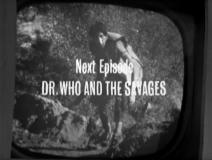 Does the name used really matter, though?** In the case of the second serial this is certainly an issue as, without context, the person mentioning it might mean the Jon Pertwee story that happens to officially hold that name on-screen. So perhaps The Daleks makes more sense - until one thinks of the episode that officially holds that name within The Dalek Invasion of Earth! In the latter case, however, most will accept the story name as the main identifier (another example of a name clash occurs between Inferno the episode and Inferno the story!)
Does the name used really matter, though?** In the case of the second serial this is certainly an issue as, without context, the person mentioning it might mean the Jon Pertwee story that happens to officially hold that name on-screen. So perhaps The Daleks makes more sense - until one thinks of the episode that officially holds that name within The Dalek Invasion of Earth! In the latter case, however, most will accept the story name as the main identifier (another example of a name clash occurs between Inferno the episode and Inferno the story!)At least Innes Lloyd's team alleviated fans' heated naming debates by introducing serial names ... unless you count the title of the aforementioned Pertwee ending in Silurians (though that isn't too disimilar to the original Next Episode caption for The Savages), or the on-screen title of the first episode of Invasion of the Dinosaurs. [Doctor Who and The Silurian title][Invasion of the Dinosaurs Part One title]
Of course this isn't the end of the debate, as the 'father' of modern Doctor Who, Russell T Davies fully knew when he re-ignited such discourse through his first two-parter of the returning series, the individually named Aliens of London and World War Three.
The composition of what constitutes a story itself is also something that isn't without debate. Colin Baker's last season is one such example: is it one long story or four individual, connected adventures? Again, the modern series offers up such conundrums, with one often-cited example series three's Utopia, The Sound of Drums and Last of the Time Lords: a three-parter or a single/two-parter? It isn't too surprising that the two latter examples have been interpreted differently depending on which story milestone is being marked! Can this be taken too far, however: the very first serial is sometimes described as being two stories, the An Unearthly Child introduction and then a three-part 100,000BC (or The Tribe of Gum as the Doctor Who Programme Guide indicated), with the rolling series cited as a valid reason for such an interpretation.
Ultimately, of course, it is entirely up our readers as to whether they prefer one title to another - indeed, searching the Internet can often find alternatively titled covers to those used by the BBC in order to grace those DVD shelves!
Little did Verity Lambert and team know what they would be unleashing upon fandom when those originals serials went out 'nameless', but at least after the closing credits of The O.K. Corral we would have a - fairly - consistent naming scheme for the rest of the Doctor's 20th Century adventures!
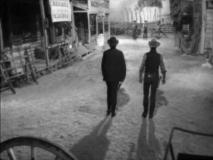
So the Earps and the Clantons are aimin' to meet,
At the O.K. Corral near Calamity Street.
It's the O.K. Corral, boys, of gun fighting fame,
Where the Earps and the Clantons, they played out the game.
They played out the game and we nevermore shall
Hear a story the like of the OK Corral.
** The answer is "of course it matters", otherwise we wouldn't be the fans we are!
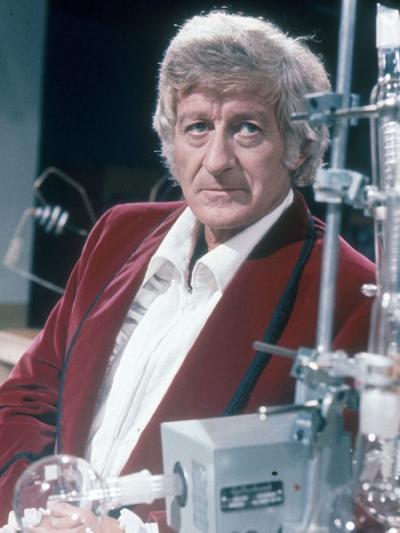
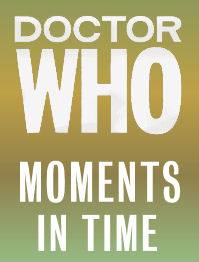 It was twenty years ago today, on Monday 20th May 1996, that we lost the irrepressible, the inspirational, the uniquely talented man that was Jon Pertwee.
It was twenty years ago today, on Monday 20th May 1996, that we lost the irrepressible, the inspirational, the uniquely talented man that was Jon Pertwee. 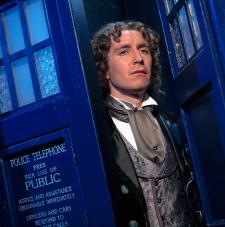

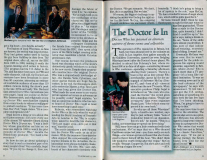
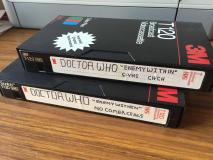

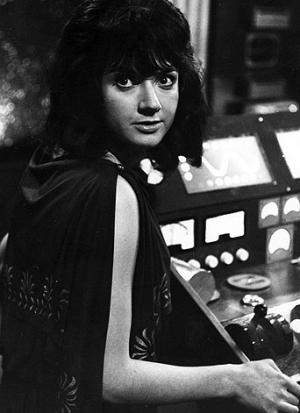
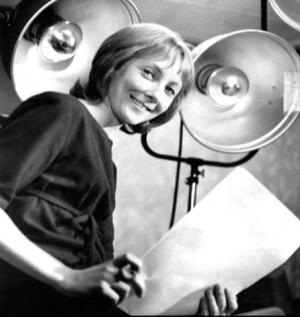
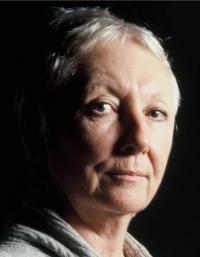 Like many departing Doctor Who companions O'Brien found that staring in a weekly TV series, watched by up to 13 million viewers each week, was no guarantee of further work. Typecasting was a real problem and roles sparse. Before taking on the role she was became a founding member of the Everyman Theatre in her native Liverpool. Upon leaving the series worked as a supply teacher at a girl's school in Kennington, before returning to the theatre. Small TV roles followed in series such as Emergency-Ward 10 and Z Cars.
Like many departing Doctor Who companions O'Brien found that staring in a weekly TV series, watched by up to 13 million viewers each week, was no guarantee of further work. Typecasting was a real problem and roles sparse. Before taking on the role she was became a founding member of the Everyman Theatre in her native Liverpool. Upon leaving the series worked as a supply teacher at a girl's school in Kennington, before returning to the theatre. Small TV roles followed in series such as Emergency-Ward 10 and Z Cars. 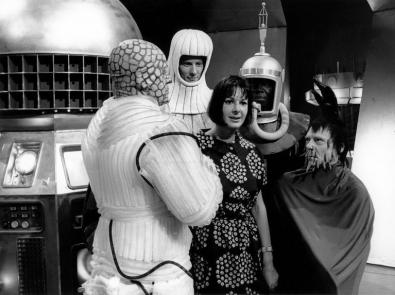




 To celebrate the 50th Anniversary of Dr Who and the Daleks, Doctor Who News is offering readers the chance to win a copy of the film on either DVD or Blu-ray, courtesy of Studio Canal.
To celebrate the 50th Anniversary of Dr Who and the Daleks, Doctor Who News is offering readers the chance to win a copy of the film on either DVD or Blu-ray, courtesy of Studio Canal.

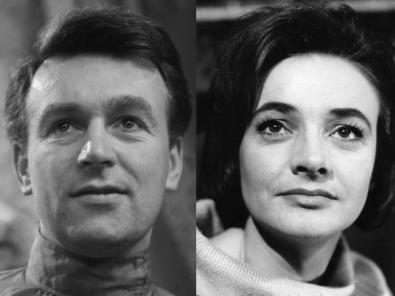
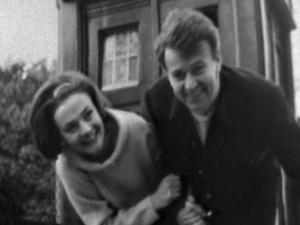 It is ironic that the travellers final return, the solution to their predicament, came not from the Doctor, but from his greatest enemy. It was the Daleks time ship that finally allowed the couple to return home. Returning to London in the 1960's. The Doctor was left with his companion Vicki. No more would the series be the constant endeavour to get the pair home. Doctor Who would now become the Doctor, travelling with his companions in Space and Time.
It is ironic that the travellers final return, the solution to their predicament, came not from the Doctor, but from his greatest enemy. It was the Daleks time ship that finally allowed the couple to return home. Returning to London in the 1960's. The Doctor was left with his companion Vicki. No more would the series be the constant endeavour to get the pair home. Doctor Who would now become the Doctor, travelling with his companions in Space and Time.



